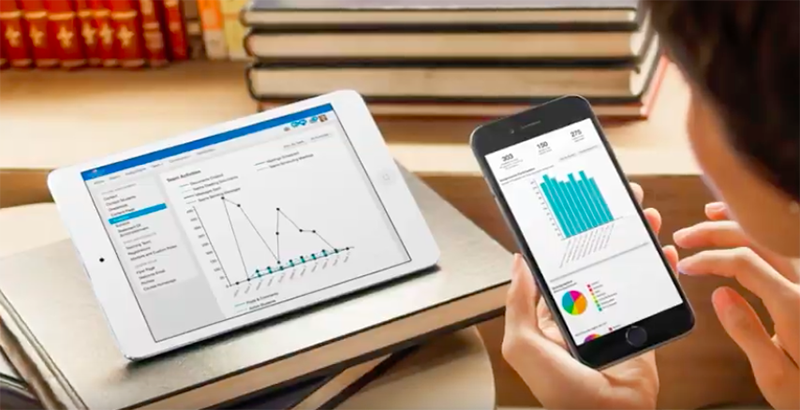74 Interview: NovoEd’s Andrew Linford on Blockchain, the Sharing Economy, Student Feedback in the Classroom & Shifting Teacher Mindset

The intersection of the sharing economy and blockchain technology in education excites Andrew Linford — and so does his first-ever opportunity to speak at SXSWedu. The senior operations manager for online education platform NovoEd is prepping for his Future20 Emerging Tech session on March 7, putting a focus on “Education Meets Blockchain & the Sharing Economy.”
The 74 spoke with Linford ahead of his appearance in Austin, gaining a preview of where this Stanford graduate and former international teacher thinks emerging technology will take education.
The 74: What does the sharing economy mean to you?
Linford: It is interesting to see how much different social interactions have become and how they are the new normal with the sharing economy. The idea of hopping into a random person’s car, staying at a random person’s house, ideas that haven’t been thought of as trustworthy and acceptable have been made acceptable. I think a lot of what the sharing economy has done has changed our perspective on everyday things.
How does this play out in education?
Feedback is such a core and central part of the sharing economy. In education, we need more of that and can learn from the sharing economy. The sharing economy has disrupted central authority, and it is now much more based on a community. What is the role of the teacher and instructor in the educational environment, and how could that be in the process of changing, and how has that already changed? What can the sharing economy tell us about that? I think there is a lot of interest in effectiveness, especially in online education. The idea of accountability has been left out for a long time. How do we tackle this effectiveness and accountability, using things like feedback and increased community visibility to ensure we get the outcomes we want?
How will this evolve?
Education is not always the fastest-moving field, and there are different parts to it, such as a mindset shift for teachers and instructors when looking at project-based and team-based learning and teachers taking a step back and allowing students to lead. We are seeing some of that, and I think we will see more of that and put trust in students to do that. What sharing economy companies have done well is systemize a certain form of feedback. eBay was the originator of this with buyer and seller feedback increasing trust and accountability on both sides. I would love to see that type of feedback, like Uber and Airbnb, applied in the classroom and getting that feedback among students in a more applicable way to leverage it for accountability.
I see it more in the direct pedagogy part, where students are sharing feedback with each other and teachers better enable that for a more effective learning experience, so students have more accountability to peers and themselves. We can leverage the internet and technology to let it happen — make a paper visible to everyone in the whole classroom. You will gain accountability with more public exposure.
What have you seen in your own experiences?
I’ve done some research on online courses with NovoEd, and I think the biggest indicator of this is the ability to make different submissions visible. The most interesting statistic was taking a look at how many comments were left on [a participant’s] first submission in a course had a direct correlation to how likely they were to complete the course. People with at least one comment saw their completion rate rise 30 percent versus those with no comment.
How does blockchain fit in?
The similarity between blockchain and the sharing economy shows two new emerging technologies enabled by the connectiveness of the internet to enable more direct communication between individuals without needing a central authority. Taking a look at the accountability aspect, blockchain also speaks to that, with every public transaction available on a ledger. The ability to build that trust is revolutionary.
Any additional thoughts?
The sharing economy is detached from direct interactions. Blockchain is also detached. Education is an interesting model to look at with its direct interaction, but if I can set up this project to give to students and let them run with it, as opposed to direct control of it, is a bit of a mindset shift. My main points are with the changing role of the administrator and the teacher in the classroom. Instead of being there directly controlling every area, teachers are there to encourage students, provide feedback, and provide different opportunities and ways to teach, supplementing community interaction among students.
Get stories like these delivered straight to your inbox. Sign up for The 74 Newsletter

;)
